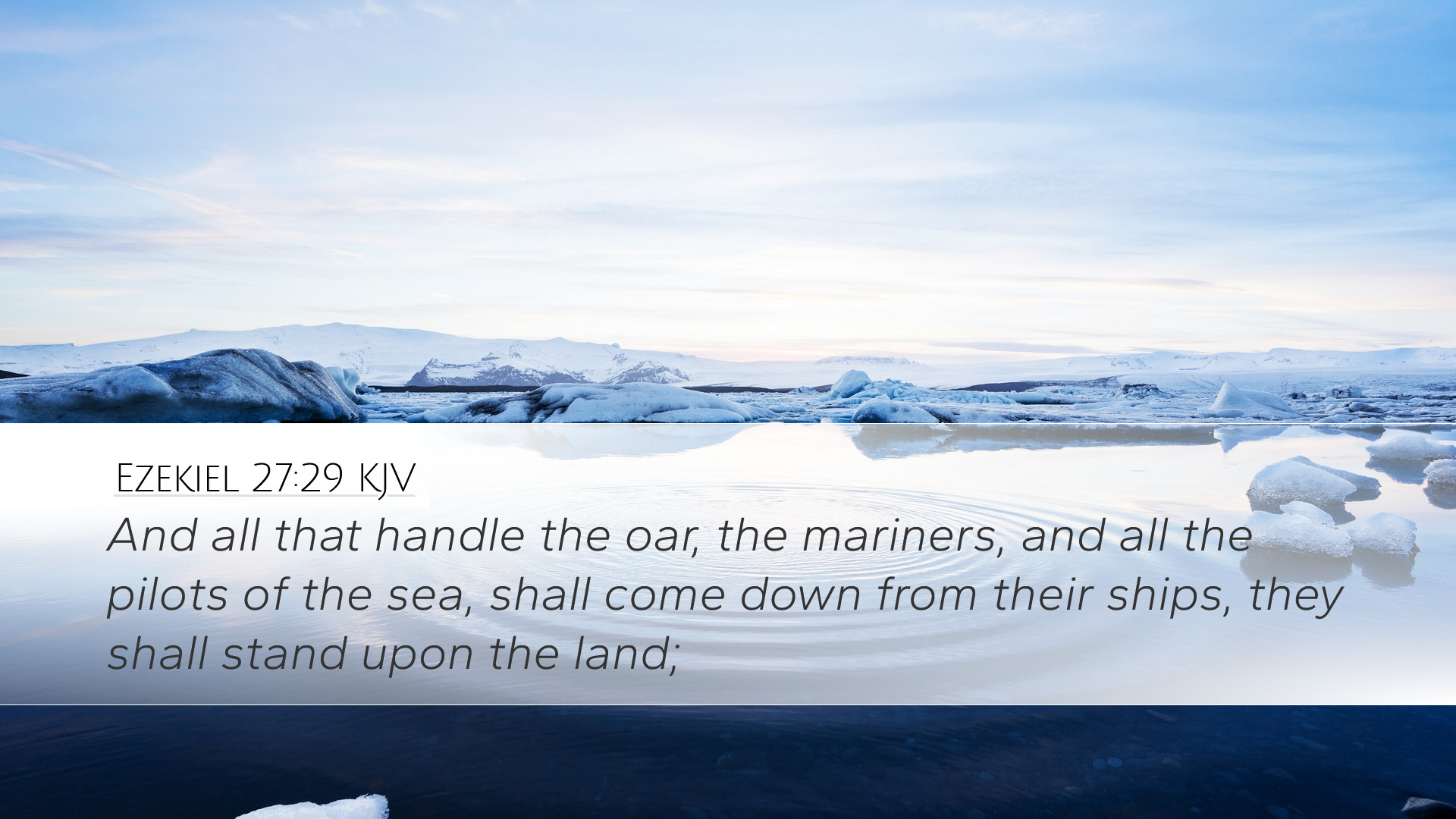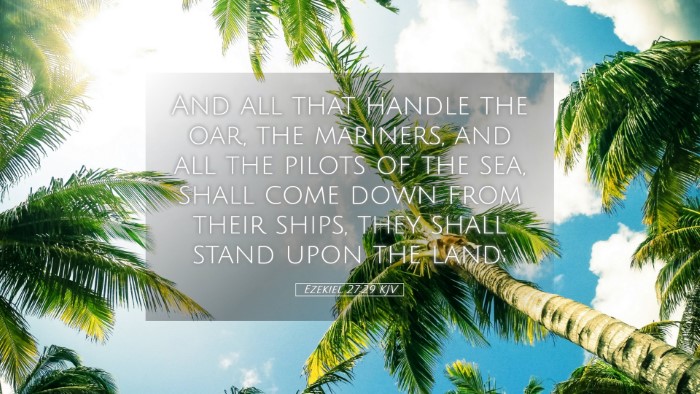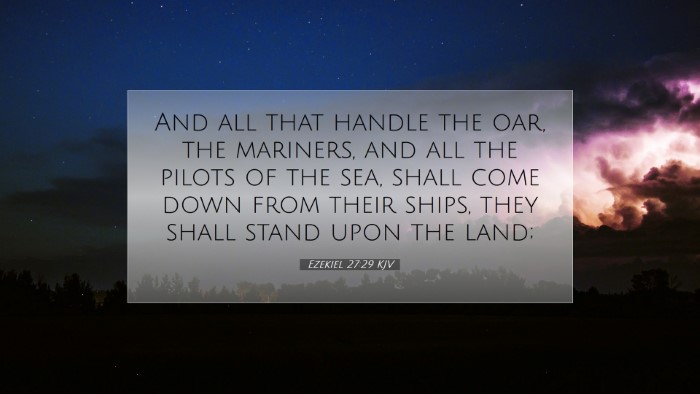Commentary on Ezekiel 27:29
Ezekiel 27:29: "And all that handle the oar, the mariners, and all the pilots of the sea, shall come down from their ships; they shall stand upon the land."
Introduction
The verse Ezekiel 27:29 encapsulates the dramatic imagery and profound messages that characterize the prophecies of Ezekiel. Drawing from the commentary insights of Matthew Henry, Albert Barnes, and Adam Clarke, we will explore the implications of this verse, its historical context, and its theological relevance.
Contextual Background
Ezekiel 27 is a passage where God, through the prophet Ezekiel, speaks against Tyre, a prominent trading city known for its riches and maritime prowess. The chapter details the grandeur of Tyre’s trade and its eventual downfall. In this specific verse, the focus shifts to the maritime community—those who navigated the waters and facilitated trade.
- Ezekiel’s Role: As a prophet, Ezekiel serves as a messenger warning of impending judgment. The imagery here highlights the grave consequences of Tyre’s pride and reliance on its commercial power.
- Historical Perspective: Tyre was known for its luxurious goods and strong naval presence. The fall of such a powerful city would naturally impact not just the city itself but also the wider ancient world, influencing trade routes and economies.
Commentary Insights
From Matthew Henry
Henry emphasizes the "desolation of Tyre" as a warning for those who become overly reliant on material wealth and worldly power. He points out that the mariners’ abrupt departure from their ships symbolizes the breakdown of prosperity and the inevitable reality of judgment.
From Albert Barnes
Barnes draws attention to the methods of judgment God employs. The imagery of mariners abandoning their vessels portrays loss of navigation—both literal and metaphorical. This reflects how the trade systems, once fortified by their maritime activities, are now rendered futile.
From Adam Clarke
Clarke elaborates on the broader symbolism of this passage, highlighting that the “handling of the oar” and the “pilots of the sea” represents those who manage and direct affairs. Their fall signifies not just the loss of commerce but a deeper loss of purpose and direction in life, revealing that without divine support, even the mightiest will fall.
Theological Implications
This verse can be understood as a portrayal of divine sovereignty and judgement. It underscores several theological themes:
- The Reality of Judgment: The abandonment of the ships illustrates the comprehensive nature of God's judgment. Just as maritime activities are central to Tyre's identity, so too are the implications of divine judgment on all aspects of life.
- Human Vulnerability: The sailors, despite their skills and strength, are rendered powerless in the face of God's decree. This serves as a reminder of human limitations and the transient nature of worldly success.
- The Call for Repentance: For pastors and theologians, this serves as a significant opportunity for exhortation. It highlights the necessity for individuals and communities to turn from their reliance on materialism and seek alignment with God’s purposes.
Applications for Today
Understanding the implications of Ezekiel 27:29 invites modern readers to reflect on their dependencies. There are several applications for pastors, students, and theologians:
- Reflections on Prosperity: Consider how society often idolizes wealth and commerce. This verse serves as a sobering reminder that such pursuits can lead to a disconnection from God.
- Encouragement for the Church: The church must recognize its role in steering believers away from worldly desires and towards spiritual truth and fulfillment.
- Personal Examination: Individuals are encouraged to assess their own lives for areas where they might be overly reliant on material security rather than faith in God.
Conclusion
Ezekiel 27:29 serves as a poignant reminder of the consequences of pride and the dangers of placing trust in earthly measures of success. The insights derived from the commentaries of Henry, Barnes, and Clarke collectively offer a rich tapestry for understanding the theological nuances present in this verse. It urges us to reflect on our own lives and communities, calling us towards repentance and a return to a reliance on God for our purpose and direction.


